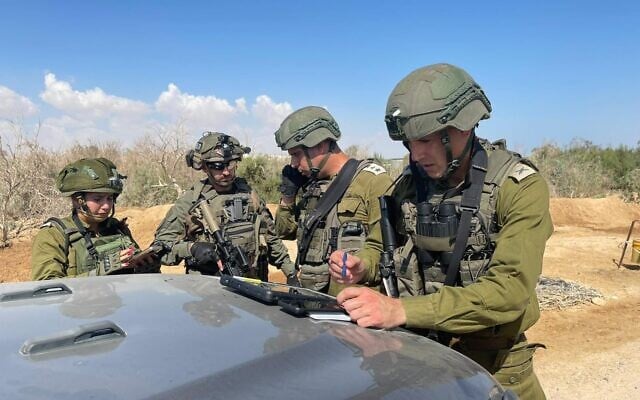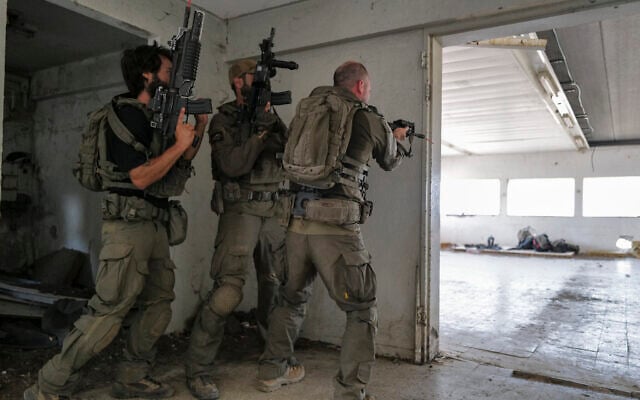In Israel's longest and most intense conflict, sparked by Hamas's attack on the country's south on October 7, 2023, the Israel Defense Forces' heavy dependence on its reserve forces has become more evident than ever. Many citizens over the age of 50 have answered the call, helping to alleviate the military's increasing demand for personnel.
Typically, soldiers leave reserve service when they turn 40, officers at 45, and those in specific roles — such as drivers — at 49, which makes serving in the reserves uncommon for older people.
As per the latest IDF data, about five percent of the active reservists are above the age of 50. Following the start of the conflict in Gaza, the count of reservists in this age group has risen by roughly 50%.
Many individuals found that choosing to return to uniform involved significant sacrifice. Veteran reservists often described the difficulty of stepping away from their families and careers, occasionally for extended periods, to fulfill their service obligations.
A 50-year-old Zev Jacobson, who serves as a volunteer reservist, has experience with IDF service. Currently the owner of a tour business, he moved to Israel 33 years ago as a lone soldier and remained in reserve duty until he was 42. Following October 7, he chose to wear his uniform again — an event he called a wake-up call for himself and numerous others.
Before October 7, there was a sense that you didn't have to be concerned... If there was a problem, the army was handling it — civilians didn't need to get involved," he said. "I believe we understood on October 7 that, regrettably, this isn't always true.
A week following the attack, Jacobson offered to serve as a guard in his hometown of Beit Shemesh before ultimately joining the newly formed96th “Gilad” Division.
The 96th Division is responsible for protecting the Jordanian border, and it includes both regular army personnel and five newly formed reserve light infantry brigades, which consist of volunteer reservists.
Unlike most reservists, who return their gear following service, individuals in the 96th Division’s reserve brigades store their weapons and equipment at home, enabling them to quickly react to unexpected situations in their local area when they are not stationed at the Jordan border.
Jacobson considered the change in attitude that the war introduced: “At times, you must take responsibility for your own safety, as well as that of your family, your community, and your city.”
Many of us [older reservists] believed we still had value to contribute," he added. "Although we may not be in the same physical condition as when we were in the army, we can still serve and offer a sense of maturity to the service.
Newer models for older trainees
Other units formed after October 7 also utilized the desire of older reservists to participate.
The "Har Zion" Mobility Unit, established within the Home Front Command's newly created Yaara Division, was developed to offer older volunteers significant responsibilities while assisting with operational requirements.
Initially, the unit hired drivers of off-road vehicles to move troops southward. As the conflict continued, it expanded to include approximately 500 volunteers across the country, each equipped with 4x4 vehicles. The unit's role is to reduce the burden on other units instead of participating in direct combat.
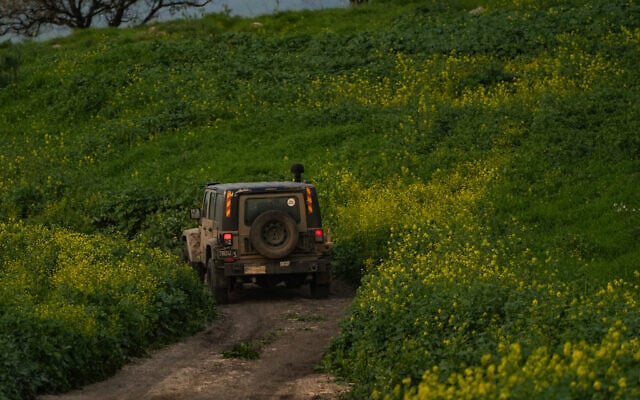
For many, it was natural to participate.
On October 7, I wanted to go back [to the reserves] right away," said Eyal, a 55-year-old high-tech manager and father of three who asked to remain anonymous. "There was a feeling that this was the moment to put everything aside in order to protect the country... I didn't want to just watch from the sidelines.
Another individual, Achiad S., 51, a father of three and the owner of an event planning company, mentioned that his reason was both practical and meaningful. Practically, he pointed to the IDF's lack of personnel. Symbolically, he viewed service as a statement of accountability to Israeli society.
We need to revive the Israeli spirit," he stated. "People are observing us, our children are watching us... and they realize that each individual should take responsibility to the best of their ability.
Easing the burden
Veteran reservists also highlighted their wish to ease the burden on younger troops.
Yonatan, 65, works at the IDF Central Command headquarters and asked to remain unidentified, stating that older reservists encounter fewer difficulties compared to their younger counterparts.
Senior citizens typically experience a more straightforward life. Individuals who are 25 years old often face challenging periods. They encounter significant pressures," he mentioned, highlighting events like selecting a college major, securing employment, or beginning a family. "As you grow older, you've already resolved these issues.
We have it, to some degree, a bit easier [than younger reservists]," Jacobson stated, repeating Yonatan's view. "Generally, our children are older — it's not as if we have young children at home.
Colleague reserve soldier Yuval Richler, 53, who is part of an Israel Air Force flight crew, observed that although older soldiers might not be dealing with stages such as career decisions or beginning families, they often still have significant obligations. In his non-military job as a high-tech employee, Richler also looks after his aging father — a responsibility that makes managing service and family life particularly difficult.
However, for him, these challenges were less significant compared to the importance of assisting younger soldiers. He remembered how he and other older reservists frequently gave up their rest days so that the younger soldiers could have them instead.
In our opinion, we were prepared to remain [on base] and work extra shifts... for soldiers who genuinely required that time away.
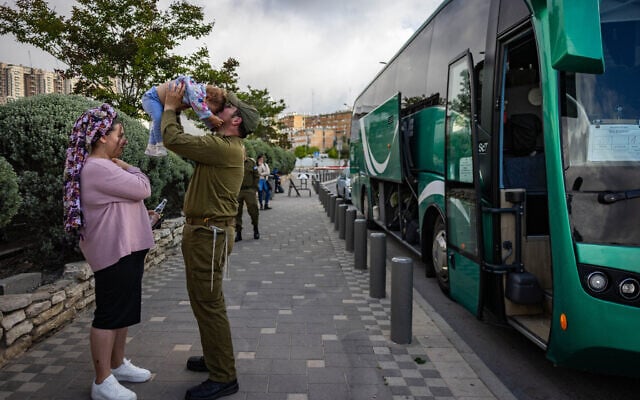
Symbolic but limited impact
Although older reservists view their sense of duty in practical ways, military experts emphasize that their involvement is more symbolic than impactful.
"Those individuals [older reservists] experience a sense of duty to join in and play a role in this prolonged conflict we are involved in," stated Dr. Ariel Heimann, a senior researcher at the Institute for National Security Studies (INSS) and the IDF's initial chief reserve officer.
As per Heimann, this occurrence is not unprecedented. "It's part of the culture of reserves," he mentioned, highlighting that even during the 1967 War of Attrition, senior soldiers participated not due to a lack of personnel, but to demonstrate support for their younger counterparts.
Today, he stated, most senior reservists are involved in support positions, rather than combat groups.
"You won't encounter soldiers at this stage among the initial group of fighters who enter homes in Gaza or Lebanon," he stated.
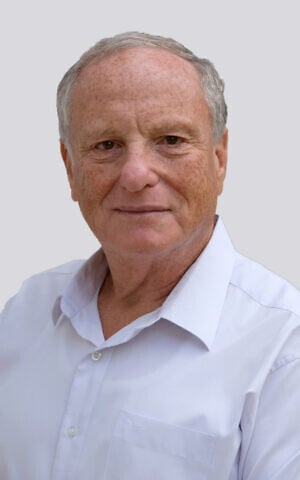
Regarding whether they can alleviate the labor shortage, Heimann was straightforward: "It's more of a symbolic gesture."
He provided an example: "If you require 1,000 NIS, and someone gives you 5 NIS, you don't object. It could be somewhat helpful, but it doesn't address the issue."
He mentioned that older reservists "are in no way, shape, or form a replacement for the ultra-Orthodox conscription."
The military has consistently reported a shortage of approximately 12,000 personnel, with 7,000 of them being combat soldiers. Older reservists are unable to address this shortfall, and initiatives to conscript members of the Haredi community continue to face strong resistance from ultra-Orthodox leaders. Approximately 80,000 Haredi men aged 18 to 24 are eligible for service but have not signed up.
Reservist Achiad stated plainly: "Because I participate in the reserves, it's easier for them not to enact these [draft] laws, as they know someone else will take care of it."
The results of their work
Reservists frequently highlight the advantages of their service, but for older veterans, these benefits are seldom monetary. Reserve pay is determined by the income soldiers receive in their civilian jobs, with the lowest payment being NIS 9,632 ($2,600) per month and the highest reaching NIS 50,695 ($13,688), as of 2025. In contrast, soldiers who are conscripted and serving their required military service receive only NIS 2,647 ($715) each month.
In reality, this implies that reservists who have better-paying jobs might end up losing money by serving, but they still show up for duty because of their dedication to their units and the nation. Certain companies, such as Eyal's, take action to fill the gap and pay their employees so they don't face financial losses due to their service.
Even with these financial constraints, many found their work to be fulfilling and revitalizing.
Achiad emphasized the social and unifying nature of the group: “In my company, just like any other reserve unit, there is a broad range of individuals with diverse backgrounds and perspectives. We are learning to communicate with each other, and to work toward a common shared objective.”
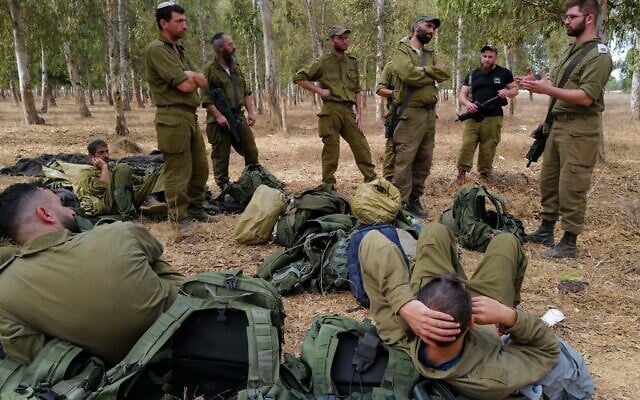
This feeling of unity and common goal frequently leads to personal satisfaction, even when facing the difficulties of reserve service.
I appreciate my reserves. That doesn't imply there aren't tough times," Yonatan stated. "However, when you're engaged in something you love... those challenging moments are beneficial for you.
Both Yonatan and Eyal observed the refreshing impact of serving alongside younger soldiers.
"If you spend time around younger individuals, it can make you feel younger," Yonatan stated. Eyal concurred, noting that serving others gives him a sense of youthfulness instead of making him feel burdened.
For Richler, the benefits of being on reserve duty held significant personal value. During the war, he was stationed at the same airfield as his daughter, and it was natural for him to serve as a mentor to her and her friends.
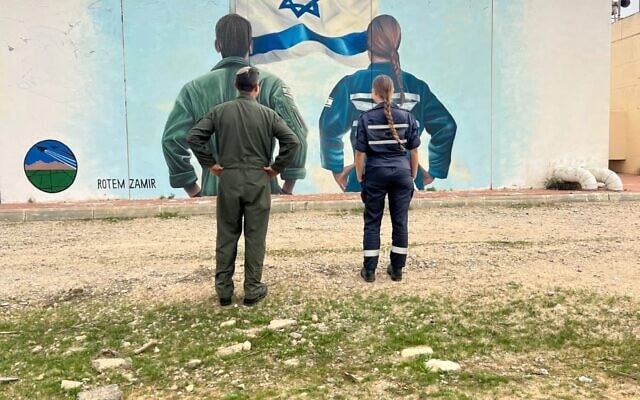
"The role today within the reserves involves completing the necessary tasks, but also serving as a father figure or counselor for younger soldiers... who frequently seek someone older to talk to," he stated.
The toll of war
Nevertheless, along with the benefits, older reservists shared distinct emotional difficulties. Richler mentioned that seeing his daughters' friends die in combat was much more heartbreaking than losing peers from his own age group.
Now, I look at every fallen soldier from the viewpoint of a father, understanding the struggles that families endure. This is significantly more difficult for me," he stated. "It's harder to witness close friends of my daughters being killed than it was seeing my own friends die in the past.
Most older reservists, like Richler, had already participated in multiple conflicts and operations prior to October 7. However, he found the current situation to be quite distinct. Although the initial days of being called up felt similar to past experiences, the extended level of intensity soon made it stand out.
"I was entirely cut off from my family and my job for the first few months of the war," he remembered.
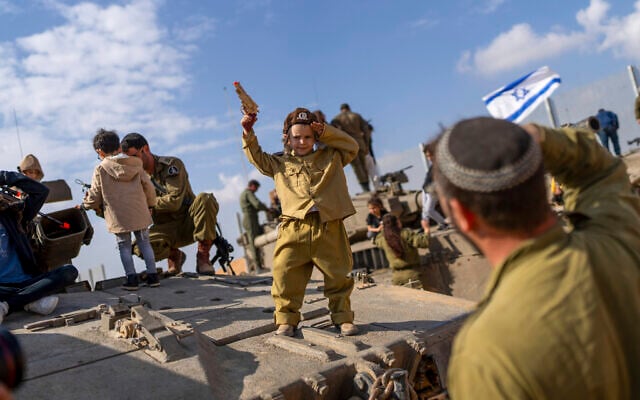
Jacobson, who participated in Operation Defensive Shield in 2002 and the Second Lebanon War in 2006, mentioned that this conflict feels more intimate. "The danger of terrorism is so near to home — there's a powerful urge to defend one's own home, rather than fighting along the borders."
This is the most intense conflict we've experienced since the Yom Kippur War," Yonatan mentioned. Nevertheless, he emphasized that for soldiers in the field, the difference between "large" and "small" wars is almost insignificant: "From a national standpoint, a small war is just a small war. But from the viewpoint of a soldier on the front lines, it's all just war.
The magnitude and length of the conflict have also had a mental impact on Israeli soldiers. According to IDF statistics, militarysuicide rates have risenSince October 7, the majority have involved reservists, highlighting the strain caused by repeated and prolonged mobilizations.
Heimann mentioned that the IDF has started implementing measures to ease the pressure, including decreasing the number of troops stationed in Gaza.
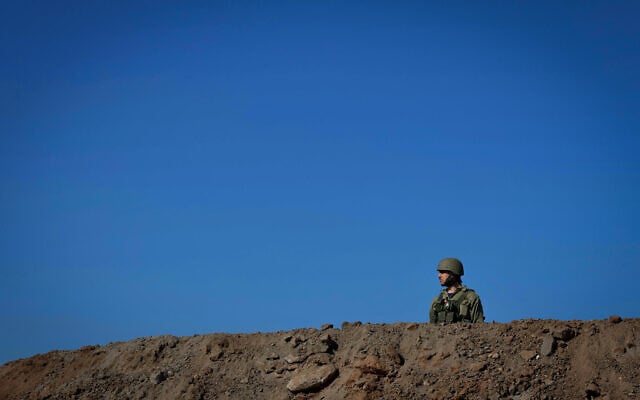
"If the number of days reservists are required to serve is reduced to 70 or 80 days per year, [reservists] will perform better," he explained.
At present, reservists who are called up on a regular basis must serve 42 days each year, although emergency call-ups can last indefinitely, with extensions granted repeatedly as long as the government approves the IDF's ongoing operations.
With the recent security cabinetvoting in favorPlans to take over Gaza, Heimann warned, the IDF might struggle to handle the increased pressure if reserve days increase once more.
Although there were challenges, numerous older veterans viewed their service not as a duty but as a blessing. Jacobson referred to it as a "privilege," rather than a "responsibility," to be an Israeli citizen in the IDF.
Achiad shared the same sentiment, putting it plainly: "I didn't choose to be Israeli, I was just fortunate."
The post Returning to service: Senior reservists rise to meet the challenge in Israel's hour of need appeared first on The Times of Israel.
Never overlook significant Israel news - sign up for the free Times of Israel Daily Edition

